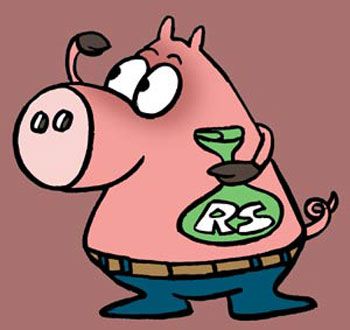Companies having a turnover of under Rs 1 crore can opt for presumptive tax scheme.
 If you’re running a small business, you can save the cost and hassles of maintaining book of accounts and getting them audited.
If you’re running a small business, you can save the cost and hassles of maintaining book of accounts and getting them audited.
To give relief to small tax payers and expand the tax base, the government has a programme called presumptive taxation scheme (PTS).
Under this, firms that have a turnover of under Rs 1 crore can pay tax without maintaining books and getting them audited.
This scheme, covered under Section 44AD of the Income Tax, is eligible for proprietary businesses, partnership firms and Hindu Undivided Family.
Companies limited by shares, limited liability partnership firms, professionals (doctors, lawyers and architects), those earning income by way of commissions or brokerage (insurance and real estate agents), and those in the business of plying, hiring or leasing goods carriage are not covered in this scheme.
Some of these businesses and professions have higher profits margins on their turnover and that’s why the government has not included these under PTS, say experts.
Those plying and leasing goods carriage are covered under Section 44AE, where the presumptive taxation is based on the number and specification of vehicles owned.
“Under this scheme, a firm needs to take eight per cent of the total turnover as its income and pay the applicable tax on it,” says Sunil Shah, partner, Deloitte Haskins & Sells.
The turnover includes money spent to pay sales tax. According to some experts, it’s better if service tax paid is also included as part of the turnover. So, if a proprietary business has a turnover of Rs 1 crore, the income considered will be Rs 8 lakh.
This will be clubbed with the income of the owner and taxed according to the slab. “The best part is that those opting for this don’t need to pay advance tax,” says Shah.
If the business owner thinks his tax liability is lower than what he will pay under the PTS, he can do so but needs to maintain book of accounts and should get them audited, too.
Experts also say that once a person opts for this scheme, the assessee is not under any obligation to explain individual entries of cash deposits into bank account, unless the entry has no connection with gross receipts.
For all the benefits it offers, PTS comes with certain restrictions. For example, assessees cannot claim any exemptions - not even depreciation.
“If a person files returns under this scheme currently and next year the turnover crosses the qualifying limit (Rs 1 crore), he will need to used the written down value of the asset while calculating depreciation,” says Satish Aggarwal, tax partner, Ernst & Young.
This means if the current value of the asset is Rs 1 lakh and this year it depreciates by Rs 15,000. Next year, the person will need to take the value as Rs 85,000, if the business does not qualify for PTS.
Similarly, if the person is carrying forward losses from the previous financial year, he cannot adjust them against profits under this scheme, explains Vikas Vasal, partner (tax), KPMG.









